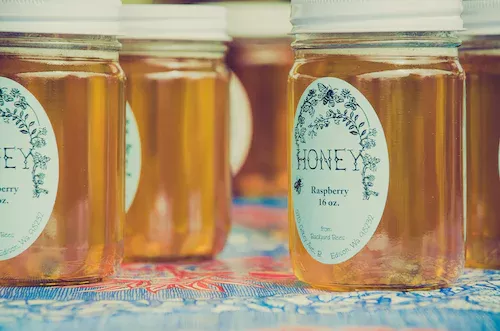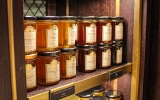How To Sell Honey Legally - Consider These 7 Things
It's a terrific way to make money selling honey, but you need to make sure you do it legally. To make sure your honey business complies with the law when selling honey, take into account these seven essential factors.
Research the laws and regulations of your state. Obtain any necessary permits or licenses and a business license, and register your business with the IRS. Contact local beekeepers to source fresh honey. Create a website and market your honey and package and label your honey according to government regulations.
This guide will assist you in navigating the legal environment, from labeling rules to inspection regulations, before selling honey.
Summary
- Make sure you comply with all applicable laws and regulations before selling honey.
- Depending on the size and location of the business, a variety of permits may be required.
- Contacting local beekeepers is the best option for sourcing fresh honey.

On this page:
- Know the Laws and Regulations of Your State to Legally Sell Honey
- Obtain the Necessary Permits or Licenses to Legally Sell Honey
- Obtain A Business License and Register Your Business with the IRS to Legally Sell Honey
- Contact Local Beekeepers to Source Fresh Honey to Sell Legally
- Create A Website and Market Your Honey to Sell
- Package and Label Your Honey According to Government Regulations
- Set Up A Payment Processing System to Accept Orders and Payments
Know the Laws and Regulations of Your State to Legally Sell Honey
To prevent any potential legal problems, you must investigate and comprehend the applicable laws and regulations. Depending on the state, there may be specific labeling and packaging requirements that must be followed.
In addition, some states may require a license or permit to be able to sell honey. Furthermore, any restrictions or caps on the volume of honey that can be sold should be understood.
For example, many states have a limit on the amount of honey that a person can produce and sell in a given year. It is important to be aware of such limits to remain in compliance with state laws.
In addition to these laws and regulations, it is important to research the beekeeping regulations in the state as well. States may have different laws governing beekeeping, so it's vital to be aware of any limitations that might exist in the place where you're selling honey.
Finally, it is important to understand any food safety regulations that apply to selling honey. This includes understanding any pasteurization or other food safety requirements that may be applicable in the particular state.
Obtain the Necessary Permits or Licenses to Legally Sell Honey
Before selling honey, it is important to check local, state, and federal regulations to ensure that any necessary permits or licenses have been obtained. In the United States, honey producers may need to obtain a permit from the US Department of Agriculture (USDA) for the sale of honey. Additionally, state and local permits may be required to operate a honey business.
To legally maintain bees and make honey, you may need to obtain a beekeeping permit in some states. A producer may be required to obtain a food license or food service authorization if they intend to sell honey to people.
The laws and regulations vary by state, and producers should contact their local authorities to ensure they are meeting all requirements. Additionally, producers should contact their local health department to ensure that the honey is being produced and handled safely.
Finally, producers should contact their local tax office to make sure they are paying all necessary taxes. By obtaining all required permits and licenses, honey producers can ensure that their business is operating legally and safely.

Obtain A Business License and Register Your Business with the IRS to Legally Sell Honey
Obtaining a business license is an important step for anyone considering selling honey. Depending on the jurisdiction and the type of business, a license may be required from local, state, and/or federal agencies. It is important to research the applicable requirements and comply with all applicable laws and regulations.
Local licenses
Depending on the jurisdiction, a business license may be required at the local level. These requirements may include obtaining a business permit or a vendor's license. It is important to check with the local government to determine what licenses are required in your jurisdiction.
State licenses
Depending on the type of business, a state license may be required. This could include a beekeeping license, a food processing license, or a sales tax license. In some states, a seller's permit may be required.
Federal licenses
Depending on the type of business, a federal license may be required. This could include an IRS Employer Identification Number, a Federal Insecticide, Fungicide, and Rodenticide Act license, or a Federal Food, Drug, and Cosmetic Act license.
Once all applicable licenses are obtained, it is important to register your business with the IRS before selling honey. To do this, you will need to file Form SS-4 and obtain an employer identification number (EIN) from the IRS. This process can be done online or through the mail.
Once you have received your EIN, you will need to register your business with the state. Depending on the state, you will likely have to file paperwork with the Secretary of State or business registration office. This paperwork will include information such as the business name, address, and type of entity (partnership, LLC, or corporation).
Once you have registered your business with the state, you will need to obtain any applicable business licenses. Depending on your location and the type of honey you’re selling (raw, organic, etc.), you may need to obtain a food handler’s license, a seller’s permit, or another type of license.
Finally, you will need to register with the IRS for sales tax purposes. To do this, you will need to complete Form ST-1, which will register your business for sales tax purposes in your state. Once this is completed, you can begin collecting and remitting the appropriate sales taxes on your honey sales. Once all the paperwork is completed and all applicable licenses have been obtained, you can begin selling honey.
Contact Local Beekeepers to Source Fresh Honey to Sell Legally
When it comes to sourcing fresh honey, there is no better option than to contact local beekeepers. Not only will you be able to get the freshest and most flavorful honey, but you will also be supporting local beekeepers and their businesses.
The first step in contacting local beekeepers is to do research in your area to find out who is available. You can do this by searching online for beekeepers in your area, or you can ask around your local community.
Once you have identified a few beekeepers, it is important to reach out and set up a meeting to discuss the possibility of sourcing your honey from them. When you meet with the beekeepers, be sure to ask about their production methods and the type of honey they produce. It is also a good idea to inquire about their pricing and availability, as well as any other questions that you may have.
Once you have found a beekeeper that you feel comfortable working with, it is important to establish a good working relationship. This will ensure that the beekeeper is reliable and that the honey they provide is of the highest quality. You should also discuss payment terms and any other relevant details.
Create A Website and Market Your Honey to Sell
Creating a website to market and sell honey is a great way to reach a larger audience and increase sales. A website should include an attractive home page with a good description of the honey, a clear product list with prices, and a secure online payment system. It could also include a blog to educate visitors about the benefits of consuming honey, recipes using honey, and other interesting facts.
Additionally, social media links should be included to encourage customers to follow and share the website. Offering discounts and promotions can help bring more traffic to the website and encourage customers to make purchases. Having a website will also help to build trust with potential customers, as they can learn more about the honey and the business.
Package and Label Your Honey According to Government Regulations
Government regulations require that honey be labeled with a list of ingredients, a nutrition facts panel, a net weight, and a statement of identity. Additionally, the container must be sealed and labeled with the producer's name and address.
Finally, labeling should include language that informs consumers of any potential allergens or foreign materials present in the honey. Following these regulations will ensure that consumers receive accurate information about the honey they are purchasing and that producers are in compliance with applicable laws.

Set Up A Payment Processing System to Accept Orders and Payments
Setting up a payment processing system to accept orders and payments before selling honey is a must-do for any honey seller. This ensures that customers can securely order and pay for their honey online, and that the seller has a way to track orders and payments.
The payment processing system should be connected to the seller's website, and the customer should have the option to pay either via credit card or online banking.
The payment processing system should also be able to store customer information so that it can be used to send invoices and confirm orders. Finally, the payment processing system should be set up to be secure and compliant with all legal requirements.


